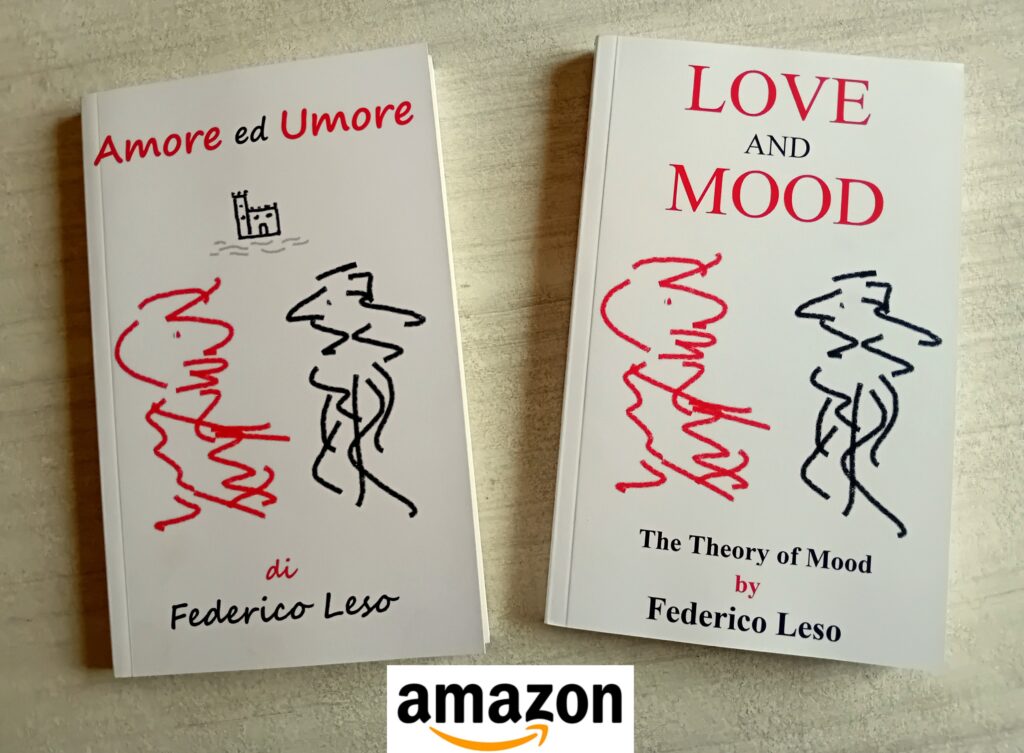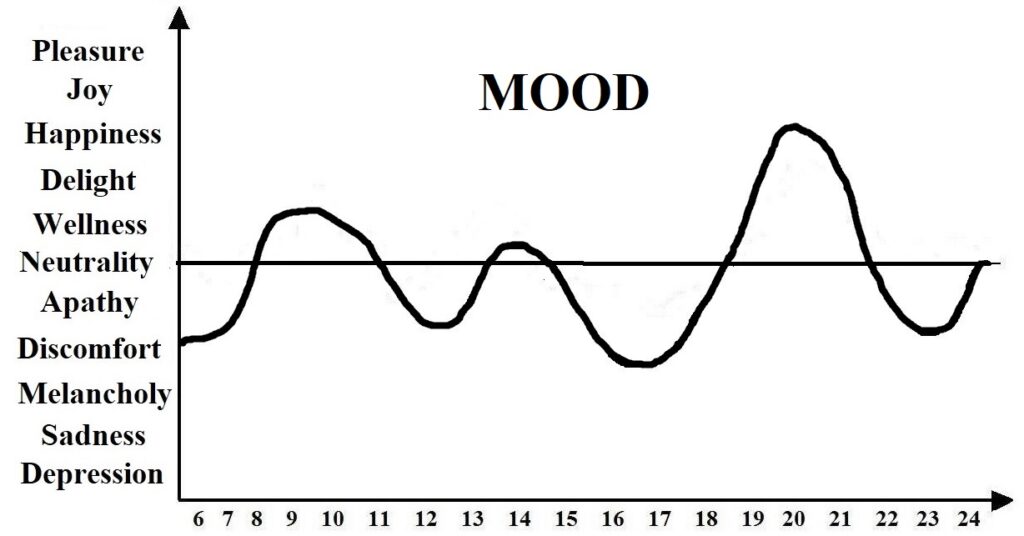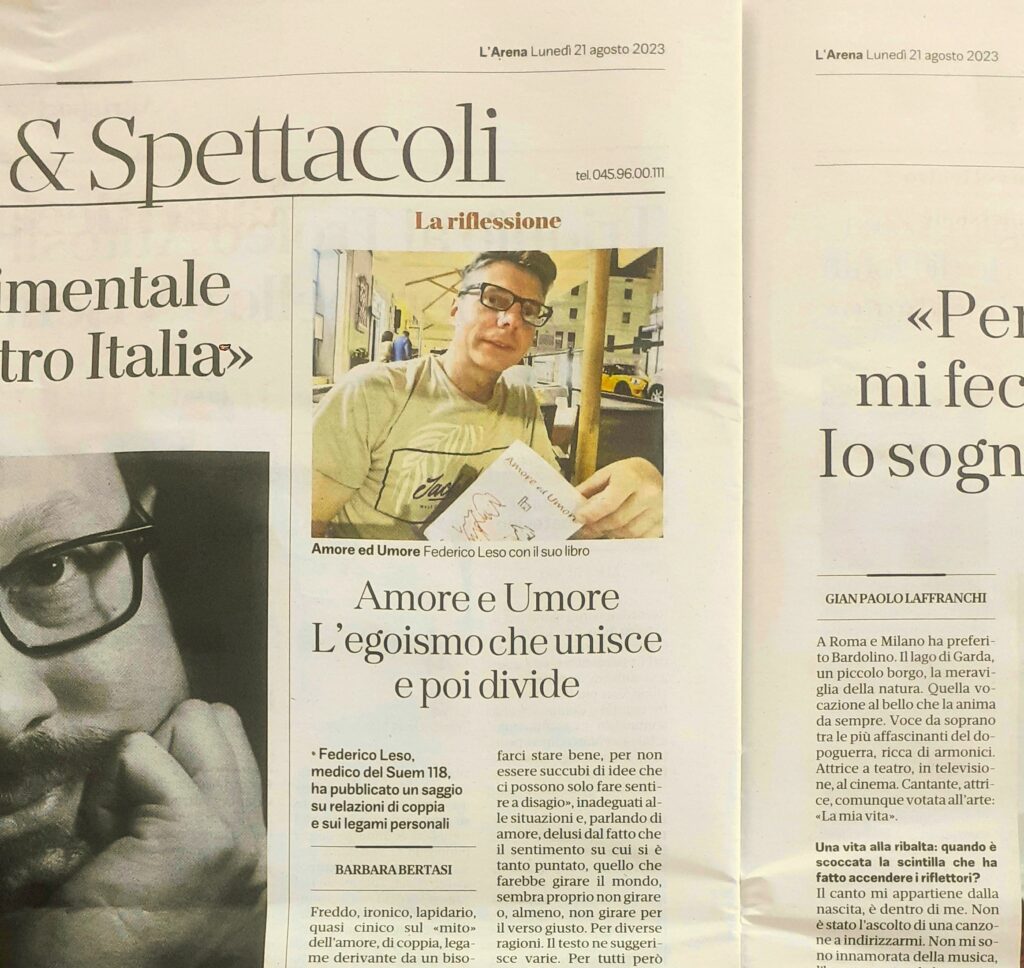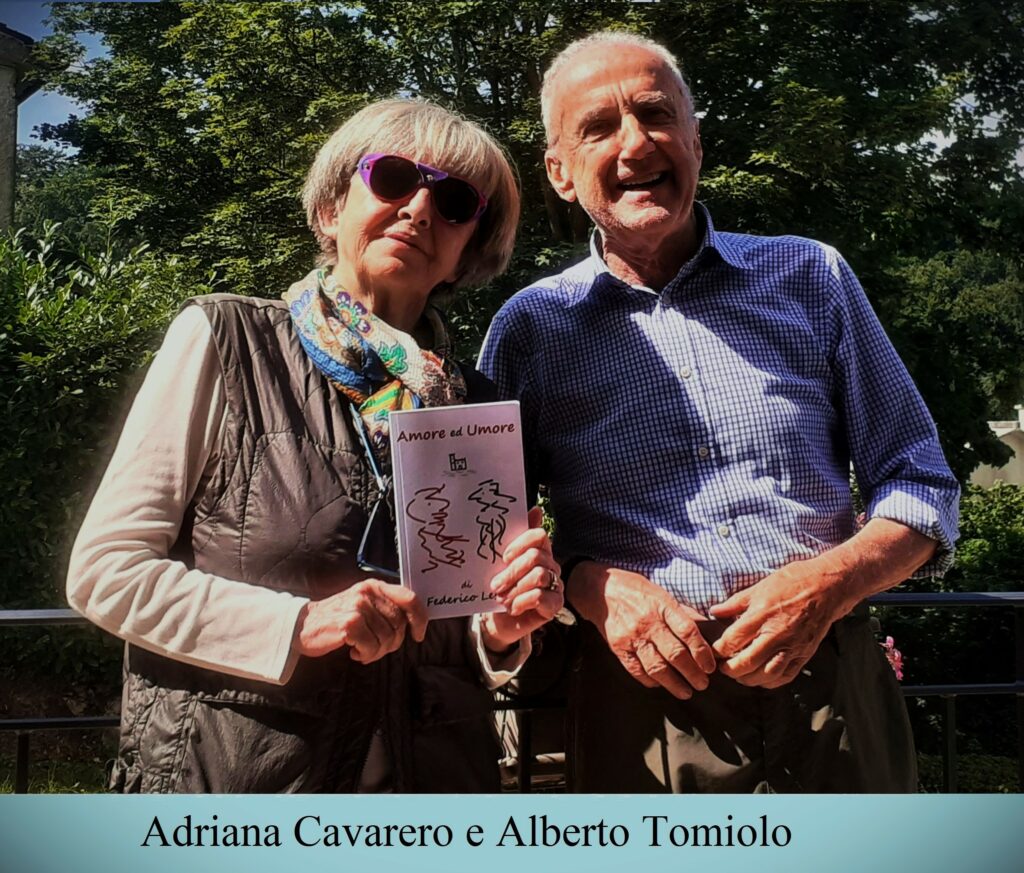

What improves our mood?
friendship, solidarity, research, exploration, action, creativity, curiosity, socialization, discovery, fantasy, inventiveness, work, sport, imagination, play, family, planning, sharing, altruism, food, sex, love…
But also alcohol, nicotine, caffeine
(Not money, fame, success)
To avoid our intrinsic (and physiological) suffering, created and selected specifically by nature (let’s not look for causes that do not exist and related ineffective solutions), we must act, operate, move, get busy, and the purpose, for us, is not the action itself, as we think and believe, but only the positive effect it has on our mood.
We do something because it makes us feel good, nothing else, this is the only purpose for us, the real usefulness of the action itself does not interest us, this interests, and is useful, only to nature.
If we did not have this suffering, this psychic pain, we would still live in caves eating berries and drinking water from the stream (we would not need anything else), but evidently we have not evolved in this way
Love
Have you fallen in love? Very well, no problem. Live it to the fullest, play with it and take it easy: it will only make you feel good. It’s only the first part of a couple’s relationship, the purely selfish one, and that’s how you should experience it: like a game or a dream.
It’s not love, as we all know, because love is something else and mood sets the rules, but let’s keep it that way. It’s just a beautiful moment of your life.
You don’t need the truth in the first part of your relationship, you can push it aside; you know it’s there and you can use it whenever you need. You should only use the truth to avoid making mistakes, hurting others or yourself and creating useless stress or suffering.
You need the truth in the second part of your relationship, instead: it’s the altruistic phase, or the concrete and mature family phase. Only the truth can allow a family to grow in harmony, joy and serenity; not dreams, false illusions and castles in the air.
Of course, this way of life is something else, and it surely is less beautiful and exciting, but it’s still positive and concrete. You can dream when you need to dream, but you have to burst your bubble and be realistic at some point.
Consider the beginning of the relationship simply as a game, an exciting game that makes you happy and nothing more; you’re just a happy person that is playing. You can call it ‘love’ and enjoy it as it is, even if it isn’t love, but call it ‘mood’ when necessary and you’ll see that you can’t go wrong that way.

Interview by Barbara Bertasi on the L’Arena newspaper.
Cold, witty, blunt, almost cynical on the myth of the couple’s love; a connection resulting from a personal need, a selfishness that unites us but then divides us, closely related to a mood that might be better for everyone if we managed to love the only thing that belongs to us: ourselves and our unique and short but wonderful life.
This is how ‘Love and Mood’, a non-fiction novel by Federico Leso, self-published on paper and in digital format, ends: with a positive exclamation and an invitation to express again our spirituality and humanity.
A book consisting of 178 pages to be read confronting with oneself as well as with the author, a doctor from 118 in Verona, whose job also taught him how to notice, in certain excessive treatments towards a loved one, apparent acts of love which are actually selfish rejections of grief and mourning.
‘Love and Mood’, he explains, is a critical essay written in dialogue form, in which the author is confronted by someone else, an imaginary friend, applying the adversarial principle to the topics addressed in the book, mainly the couple’s love in its various declination, including family, but also many other aspects of life that might seem trivial but in fact are important to make us feel good and not be dominated by ideas that might make us uncomfortable, inadequate and, when speaking of love, disappointed by the fact that the feeling upon which we focused so much, that should make the world go round, isn’t making it go round at all, or rather, in the right direction for several reasons.
The book suggests some; for all of them, however, there is one important rule on which Leso elaborated his own theory: mood, that can improve depending on our behaviours and regulates everything we do; even love is linked to this state of mind.

Interview by Silvia Beltrami on the Telearena Channel’s Evening News
A realistic and somewhat humorous book that makes one meditate; a good and thought-provoking read about the couple’s relationships, from falling in love to ultimate love, family and separation… At the heart of the book, the theory of mood as a biological function…

We can’t automatically exclude romantic love between two people, of course; we can say instead that even love has a ‘right of citizenship’, somehow, but it doesn’t prevail, nor it is the true reason behind the union of the couple and their subsequent separation…
… Its non-prevalence, and thus its related weakness, is caused by something even stronger than love that is connected to our selfishness…
… Selfishness brings us together, but then it’s the same thing that divides us.
Let’s try to outline two different lists of possible values.
The first list, the correct one, gives peace and serenity to our lives and existence, because it’s complete and everything is in the right order of importance.
The second list, on the other hand, is still potentially complete, but makes the mistake of establishing a wrong order of importance, and that’s why it can never give you a serene, happy and fulfilling life.
| Right | Wrong | |
| 1° | Ourselves | Love |
| 2° | Family | …….. |
| 3° | ………… | …….. |
| 4° | Love | …….. |
The first list is typical of a man who thinks first about himself, with a little healthy selfishness, then about his family and finally about everything else, including love. That way, he lives a right and balanced life.
The second list is usually typical of the female gender, who often has the bad habit of ranking love in first place, basing a good part of their lives and existence on a risky bet, that is lost from the start.
The second list doesn’t sit well because it’s not based on reality. You cannot live a balanced, fulfilling and happy life following that list, because no matter how exciting a game is, it should never occupy first place and overshadow all the other values that are much more important, real and concrete. With the second list, you can only live a life of endless disappointment.
Love shouldn’t be on the podium, that’s true, but it is also true that love is surely in first place on the list you have in your pocket, if you rank those actions that improve our mood in order of efficiency and effectiveness. That’s why the mistake of putting love in first place at the top of our list of values is understandable, indeed it is only human. Thus, we need to be careful not to make this serious mistake.
Love is a powerful force that only a true Jedi can really control; it’s so powerful that it can even annihilate everything: our values, our loved ones, our lives and ourselves. You might be able to live with just love, water and stale bread, but then you would have to give up everything else.
We have three possible choices:
1)To give up love and obtain everything else, which is no small thing, preserving family. [FS with a] or [F with a]
2)To give up family and obtain love, but in this case, love would have to be continuously changed and redesigned, otherwise it would change into family over time. [L with a] or [LS with a]
3)To change the rules of the game , modifying and updating the laws that regulate a couple’s relationship, in order to allow a peaceful and long-lasting coexistence of family and even love, if we cannot do without it. [All of the above]


federicoleso@virgilio.it






